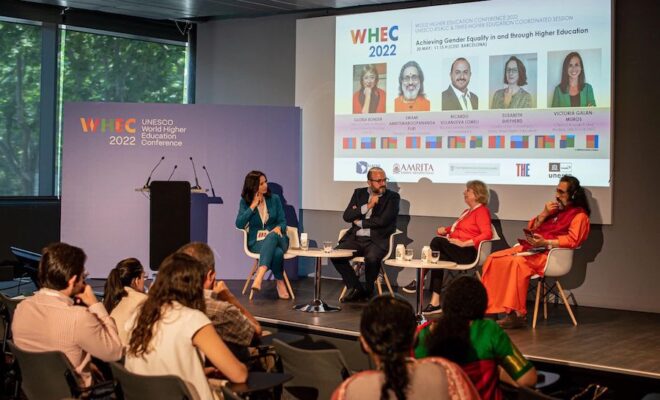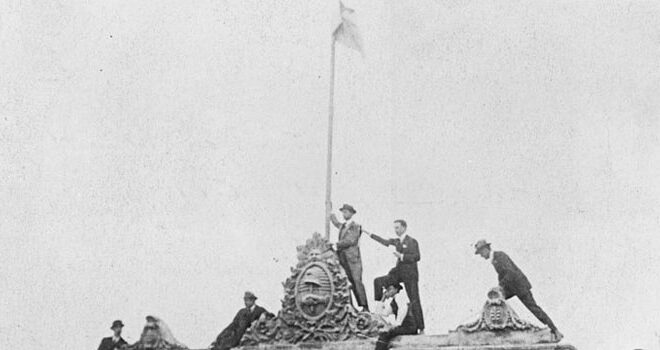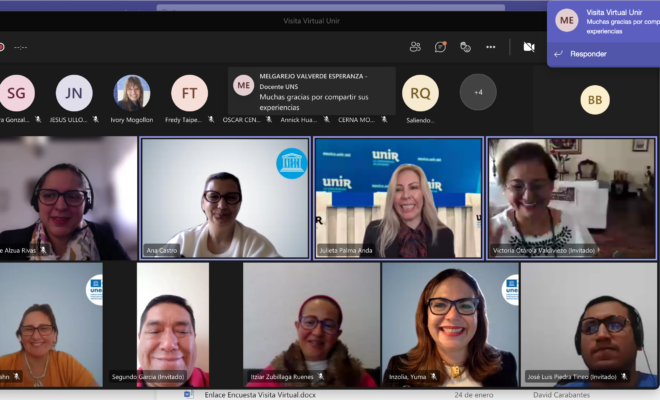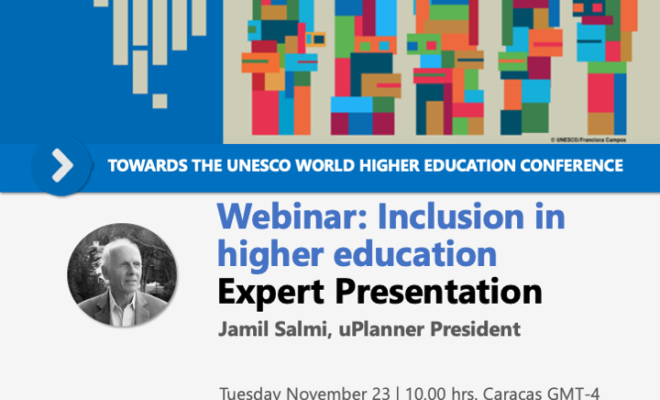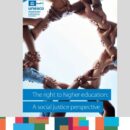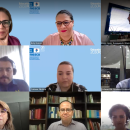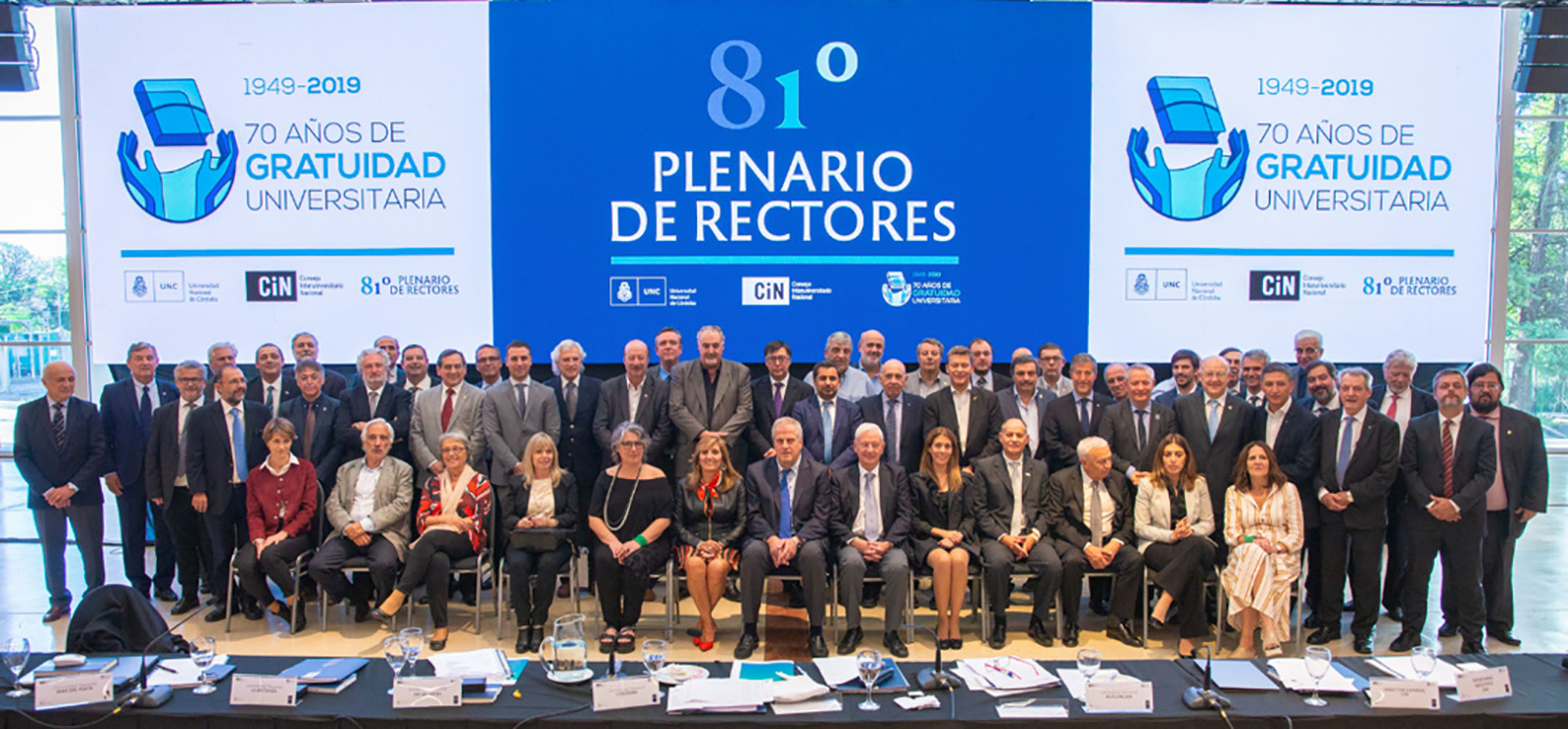The transition to hybrid education will translate into a greater quality of teacher-student interaction, Francesc Pedró
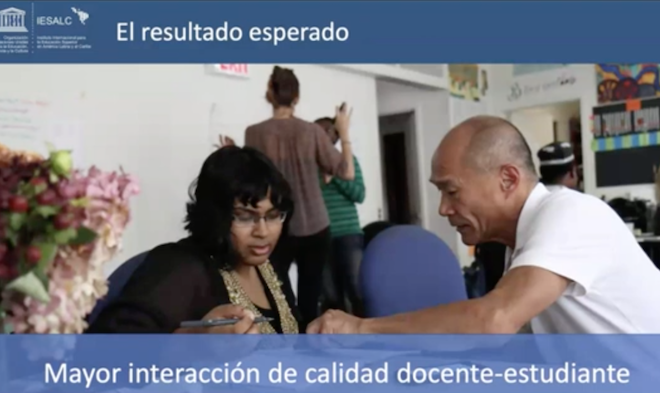
“The use of management and e-learning platforms has made more progress in the world of higher education than in school education,” said UNESCO IESALC Director Francesc Pedró at the beginning of his intervention at the webinar: Innovation and Technology in Higher Education.
During the event, organized by the DIFODS Program “Fortalecimiento de Competencias de los docentes usuarios de dispositivos electrónicos portátiles” (Strengthening Skills of Teachers Users of Portable Electronic Devices) of the Ministry of Education of Peru, Pedró indicated that “Only 51% of households in Latin America and the Caribbean are adequately equipped” and that despite having low connectivity in Peru, mobile phone connectivity is high. “There are more cell phones than inhabitants in the country”.
The director of UNESCO IESALC referred to three disconnections in higher education: digital, personal and pedagogical. In relation to digital, he said that in the wake of the COVID-19 pandemic, universities worldwide have done everything possible to make the connection accessible in their study spaces, have delivered SIM cards, mobile data cards, and established free connection for students.
Regarding personal disconnection, he referred to the low capacity for self-regulation and the socio-emotional drifts that students currently experience. He talked about the difficulty of maintaining a schedule discipline and putting into practice the principle of learning-learning. This, coupled with the lack of connectivity, makes 60% of students around the world exhibit stress and difficulties regarding how to manage themselves in the digital world. Also, 30% suffer from anxiety.
Regarding the pedagogical disconnection, he pointed out that it is essential to make pedagogical proposals in accordance to the current context since “school systems continue to train students for universities that no longer exist”. He mentioned the PMESUT program that had the support of UNESCO IESALC to assist the digitization of higher education in 13 public universities in Peru. Certain universities have drawn lessons from the pandemic, have seen opportunities in this crisis and have taken advantage of them to transform the teaching-learning experience for the better, he said.
He also referred to three windows of opportunity that the crisis has presented: 1) Improving pedagogical capabilities in technology-rich environments 2) Increasingly universities establish a hybrid education (online and face-to-face) that allows flexibility, mainly at graduate level. 3) The demand for distance education has grown. In Brazil 37% of students are in distance education programs. Worldwide demand for online programs has grown by 16%. In 10 years, the number of online higher education students will surpass the traditional ones according to Pearson (2019).
Other opportunities that have emerged due to the crisis are the need to create agreements with telephone companies to guarantee connectivity in universities; use learning metrics to improve student performance, adapt education to the needs of students; guarantee the authenticity of school and university records thanks to blockchain; use artificial intelligence in favor of guaranteeing the principles of UNESCO such as respect for democracy, privacy, etc….
To achieve a better transition, teachers must be convinced of the usefulness of the new digital platforms and know that they are within their reach to demonstrate that their efforts will obtain positive results. In this way, the expected result is to have higher quality in the teacher-student interaction, increasing human relations. “To succeed, we need to reinvent the university,” Pedró concluded.
RELATED ITEMS
